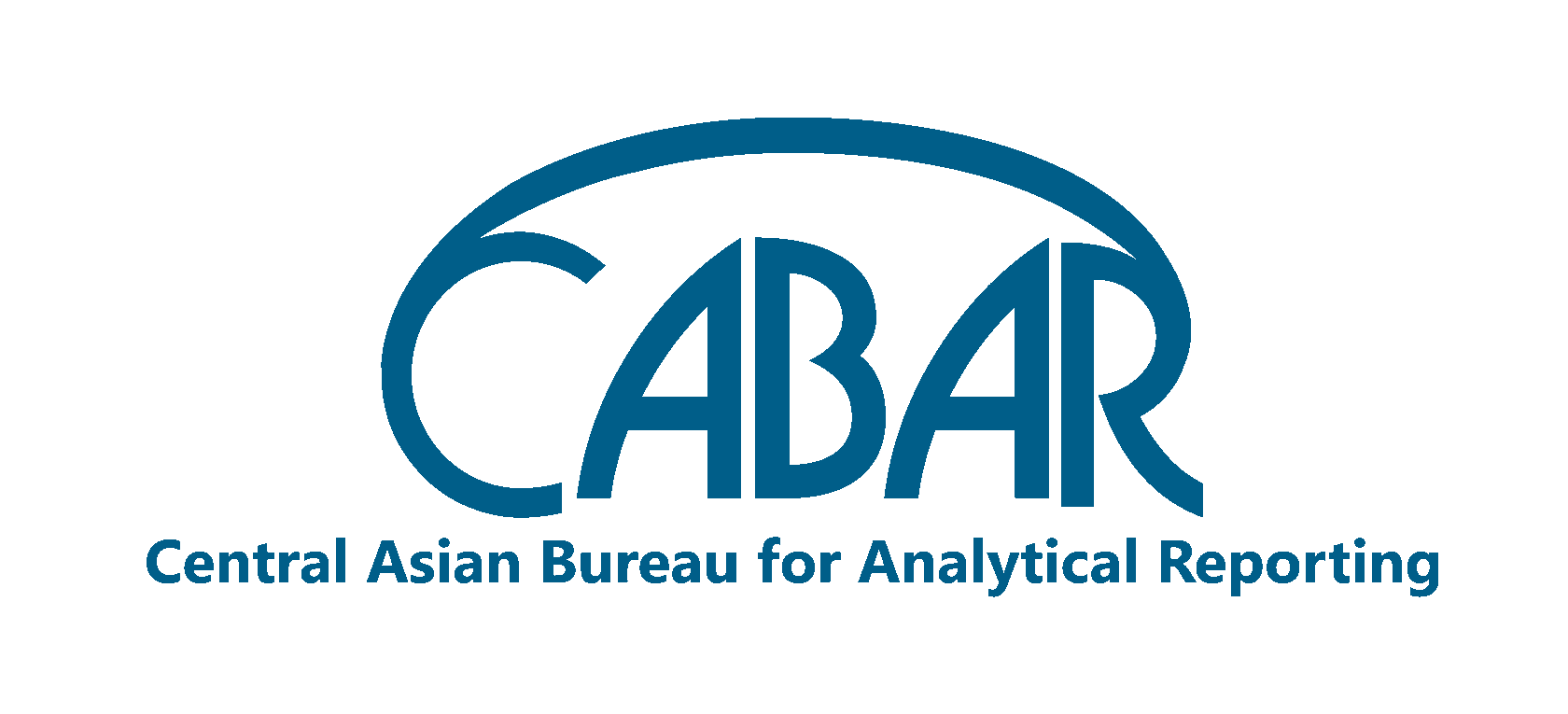
NEW MECHANISMS
FOR REGULATING
EXTERNAL LABOR MIGRATION
IN UZBEKISTAN
FOR REGULATING
EXTERNAL LABOR MIGRATION
IN UZBEKISTAN
Madina Abdullaeva
is a lecturer at the Department of Political Science
at the University of World Economy and Diplomacy
(Tashkent, Uzbekistan).
at the University of World Economy and Diplomacy
(Tashkent, Uzbekistan).
Madina Abdullaeva (Uzbekistan) analyzes important changes in the state policy towards labor migrants and considers new mechanisms created to keep in touch with them in a material, written specially for CABAR.asia.
Uzbekistan has seriously taken up the issue of regulating the processes of external labor migration: the state is fighting illegal labor migration, creating conditions for organized employment of citizens abroad and reintegrating former labor migrants after returning home.
The reform of the migration system involves updating the legislative framework, creating new institutions, including public-private partnerships, and introducing social mechanisms to support citizens and their families before, during and after returning from labor migration.
Uzbekistan has adopted a comprehensive and long-term strategy for providing social support to migrants, has developed the first-ever employment mechanisms that allow migrants after returning to their homeland to overcome the difficulties of the economy and develop human capital.
Uzbekistan has adopted a comprehensive and long-term strategy for providing social support to migrants, has developed the first-ever employment mechanisms that allow migrants after returning to their homeland to overcome the difficulties of the economy and develop human capital.
Uzbekistan is among those countries where high rates of labor migration abroad is noticed. The coronavirus pandemic has significantly affected the statistics related to external labor migration. In 2019, according to official data alone, more than 2.5 million citizens of Uzbekistan were labor migrants.1 In 2021, the number of labor resources in the republic amounted to 19.3 million people, of which 1.67 million people were external labor migrants - 8.6% of the working population.2 The main flows of labor migration fall on Russia - 71%, Kazakhstan - 12%, South Korea - 4% and Turkey - 3%.3 In 2021, the amount received through the systems of international money transfers to Uzbekistan is equal to 8.1 billion USD4 or 13% of the country's GDP. This is 34% more than in 2019 and 2020 - 6 billion USD.5
The issue of regulating external labor migration is important for Uzbekistan, and the past years have been marked by avoidance of its discussion. In connection with the change of power and the renewal of domestic and foreign policy in Uzbekistan, there are positive changes in this direction. The attitude of officials, the media, non-profit NGOs has changed towards the issue of labor migration, migrants began to be perceived as a part of Uzbekistan abroad, with whom they need to have conversations. At the same time, a systematized and well-coordinated mechanism of communication with labor migrants is still at the formation stage, work in this direction is very relevant.
The issue of regulating external labor migration is important for Uzbekistan, and the past years have been marked by avoidance of its discussion. In connection with the change of power and the renewal of domestic and foreign policy in Uzbekistan, there are positive changes in this direction. The attitude of officials, the media, non-profit NGOs has changed towards the issue of labor migration, migrants began to be perceived as a part of Uzbekistan abroad, with whom they need to have conversations. At the same time, a systematized and well-coordinated mechanism of communication with labor migrants is still at the formation stage, work in this direction is very relevant.
Problems of migrants
Working with external labor migrants is an integral part of the state's humanitarian policy. Uzbekistan has adopted international legal principles and norms and is also improving national legislation in this area. In 2018, the republic joined the International Organization for Migration and ratified the IOM Constitution, adopted the "Concept of State Policy on Cooperation with Compatriots Living and Working Abroad" and the Program of Priority Measures for the Development of Cooperation of the Republic of Uzbekistan with Compatriots Living Abroad.
For the first time, the most important documents regulating the sphere of external labor migration were adopted:
For the first time, the most important documents regulating the sphere of external labor migration were adopted:
2018
2018
Law of the Republic of Uzbekistan "On private employment agencies" dated October 16, 2018.
2018
2018
Decree of the President of the Republic of Uzbekistan "On additional measures to further improve the system of external labor migration of the Republic of Uzbekistan" dated July 5, 2018
2019
2019
Decree of the President "On measures to further strengthen guarantees for the protection of citizens of the Republic of Uzbekistan engaged in temporary labor activities abroad and members of their families" dated August 20, 2019
2019
2019
Resolution of the Cabinet of Ministers of the Republic of Uzbekistan "On additional measures to protect the rights and legitimate interests of citizens of the Republic of Uzbekistan engaged in temporary labor activities abroad" dated August 23, 2019
2020
2020
Decree of the President of the Republic of Uzbekistan "On measures to introduce a system of safe, orderly and legal labor migration" dated September 15, 2020
2021
2021
Decree of the President of the Republic of Uzbekistan "On additional measures to encourage citizens leaving for organized labor migration abroad" dated July 30, 2021
The documents are aimed at solving three main problems afflicting the bodies of external labor migration:
1. Fight against illegal labor migration
Citizens have the right to carry out labor activities outside the country only in the manner established by the Decree of the Cabinet of Ministers of the Republic of Uzbekistan No. 505 dated February 23, 2002, through the authorized body - the Agency for External Labor Migration. Of the 2 million people who went abroad in the first half of 2020, only 992 thousand people had legal status.6 Some experts point out that the state monopoly on the export of labor, the lack of competition in the region led to the illegal activities of certain legal entities and individuals in organizing illegal labor migration, uncontrolled by the state.7
Experts also note that irregular migrants often become victims of fraud and deception by recruitment agencies and various employment intermediaries. They are forced to pay large sums of money for moving, legalization, obtaining the necessary corrections and a contract. Upon arrival, original contracts may be replaced with less profitable ones, and irregular migrants themselves may be subjected to abuse, inhumane treatment, physical and sexual abuse, discrimination, and arbitrary deportation without return of money or property.8 According to the statistics of the Ministry of Internal Affairs of the Republic of Uzbekistan, in 2020 the most common type of fraud was associated with promises to send abroad to work (13.9%).9 Currently, the priority of the migration policy of Uzbekistan is to ensure the safety of external labor migrants.
Experts also note that irregular migrants often become victims of fraud and deception by recruitment agencies and various employment intermediaries. They are forced to pay large sums of money for moving, legalization, obtaining the necessary corrections and a contract. Upon arrival, original contracts may be replaced with less profitable ones, and irregular migrants themselves may be subjected to abuse, inhumane treatment, physical and sexual abuse, discrimination, and arbitrary deportation without return of money or property.8 According to the statistics of the Ministry of Internal Affairs of the Republic of Uzbekistan, in 2020 the most common type of fraud was associated with promises to send abroad to work (13.9%).9 Currently, the priority of the migration policy of Uzbekistan is to ensure the safety of external labor migrants.
2. Problems with organized employment of citizens abroad
Before the adoption of new legal acts, the participation of the responsible authorities was limited to the registration of people leaving for work,10, at a time when the processes of labor migration acquired a spontaneous and massive character. For example, if before 2018, 4 thousand citizens were in labor migration according to an orderly scheme annually, recently (2018-2020 - author's note) the coverage of labor migrants by targeted migration amounted to 190.5 thousand people, of which 8.9 thousand people are provided with work through the agency of external labor migration.11 In 2021 alone, 108.5 thousand12 migrants were employed directly by the agency, which is 10 times more than in previous years. The main directions of the flow of external labor migration for the specified period were: Russia - 100.1 thousand people, Kazakhstan - 6.9 thousand people and South Korea - 1.5 thousand people.13
3. Ensuring employment of people who have returned from labor migration
Ensuring employment of people who have returned from labor migration is the most acute problem that directly affects the domestic labor market. In 2020 alone, 232.2 thousand labor migrants returned to Uzbekistan due to the pandemic.14 In the republic, as in other sending countries, the factors of external labor migration are considered to be the tension of the labor market and the relatively low level of labor costs.15
It is known that the reform begins with the revision and updating of the legislative framework, which serves as the basis for further actions. The sphere of external labor migration is regulated by delegated legislation (by-law), but there is no legislative act that comprehensively regulates all aspects of social relations in the field of external labor migration, as well as the norms of international treaties of the republic in the field of temporary labor activity abroad.16 The adoption of a law on migration, which includes norms for external labor migration, could improve national legislation to further implement its provisions.
Reform Solutions
Work on reforming the system of external labor migration continues. Today, Uzbekistan openly admits the existence of accumulated problems in this area. At the international level, the issue of labor migration is constantly discussed at meetings with heads of state with the largest number of Uzbek migrants. Moreover, 8 intergovernmental agreements, 7 interdepartmental agreements, 1 agreement and 1 convention within the CIS have been signed, there are also 395 agreements with recruiting companies and employers. For example, a mechanism has been worked out to reduce the period of preparation of Uzbek workers for entry into Korea, which is 15-35 days (reduced by 2 times).17
The leadership of the republic strictly controls the activities of state bodies and the executive discipline of officials. Employees of diplomatic missions and consular offices of the Republic of Uzbekistan, foreign representative offices of the agency are strictly warned of responsibility for negligence, bureaucracy and red tape when dealing with appeals from labor migrants, especially on issues requiring urgent measures and providing them with the necessary assistance.18 Deputy Minister of Employment and Labor Relations is personally responsible for improving the system of external labor migration, cardinally expanding its organized forms, ensuring the protection of labor, social and other rights of citizens leaving to work outside the republic, engaging in entrepreneurial and labor activities of those labor migrants who have returned from abroad.19
The leadership of the republic strictly controls the activities of state bodies and the executive discipline of officials. Employees of diplomatic missions and consular offices of the Republic of Uzbekistan, foreign representative offices of the agency are strictly warned of responsibility for negligence, bureaucracy and red tape when dealing with appeals from labor migrants, especially on issues requiring urgent measures and providing them with the necessary assistance.18 Deputy Minister of Employment and Labor Relations is personally responsible for improving the system of external labor migration, cardinally expanding its organized forms, ensuring the protection of labor, social and other rights of citizens leaving to work outside the republic, engaging in entrepreneurial and labor activities of those labor migrants who have returned from abroad.19
New legal, institutional, and social mechanisms for dialogue with external labor migrants have been developed. In 2018-2019, the following structures appeared for the first time in the system of external labor migration:
-
 The position of adviser to the Prime Minister of the Republic of Uzbekistan was introduced - the head of department for protection of rights of the citizens of the Republic of Uzbekistan engaged in temporary labor activities abroad and international economic cooperation under the Cabinet of Ministers of the Republic of Uzbekistan.20
The position of adviser to the Prime Minister of the Republic of Uzbekistan was introduced - the head of department for protection of rights of the citizens of the Republic of Uzbekistan engaged in temporary labor activities abroad and international economic cooperation under the Cabinet of Ministers of the Republic of Uzbekistan.20
-
 The activities of private employment agencies (PEA) for the employment of citizens are allowed.21 Previously, this was carried out exclusively by the agency. There are 110 PEAs in the register of the Ministry of Employment and Labor Relations, of which only 7 are licensed to operate.22 In 2019-2020, 3214 citizens of Uzbekistan were employed through the PEA.23 However, 71 agencies lost their licenses for improper work, and in 2020, 51 criminal cases were initiated against 11 PEA for misappropriation of 7.6 million USD from 9,338 citizens.24
The activities of private employment agencies (PEA) for the employment of citizens are allowed.21 Previously, this was carried out exclusively by the agency. There are 110 PEAs in the register of the Ministry of Employment and Labor Relations, of which only 7 are licensed to operate.22 In 2019-2020, 3214 citizens of Uzbekistan were employed through the PEA.23 However, 71 agencies lost their licenses for improper work, and in 2020, 51 criminal cases were initiated against 11 PEA for misappropriation of 7.6 million USD from 9,338 citizens.24
-
 The Fund for the Support of Labor Migrants was established with a budget of 26 million USD to provide legal and social protection, as well as material assistance to external labor migrants.25 Separate compensation is provided for expenses related to passing qualifying exams, purchasing a travel ticket, issuing a "working visa", etc. In 2021, 6,283 migrants were provided with social and 13,424 material assistance at the expense of the Fund.26
The Fund for the Support of Labor Migrants was established with a budget of 26 million USD to provide legal and social protection, as well as material assistance to external labor migrants.25 Separate compensation is provided for expenses related to passing qualifying exams, purchasing a travel ticket, issuing a "working visa", etc. In 2021, 6,283 migrants were provided with social and 13,424 material assistance at the expense of the Fund.26
-
 7 representative offices of the Agency for External Labor Migration were opened in Moscow, St. Petersburg, Ufa, Samara, Novosibirsk, Yekaterinburg and Gwangju. In 2021, 8,811 labor migrants were provided with legal assistance, 295,102 migrants received consultations, wages, and monetary compensations in the amount of 984.1 thousand USD were returned from the employer.27 During this period, 358 migrants were temporarily accommodated in hostels, 321 people who found themselves in difficult conditions were returned to their homeland, and medical expenses were reimbursed for 17 citizens who were seriously injured during labor migration.
7 representative offices of the Agency for External Labor Migration were opened in Moscow, St. Petersburg, Ufa, Samara, Novosibirsk, Yekaterinburg and Gwangju. In 2021, 8,811 labor migrants were provided with legal assistance, 295,102 migrants received consultations, wages, and monetary compensations in the amount of 984.1 thousand USD were returned from the employer.27 During this period, 358 migrants were temporarily accommodated in hostels, 321 people who found themselves in difficult conditions were returned to their homeland, and medical expenses were reimbursed for 17 citizens who were seriously injured during labor migration.
-
 Regional branches of the agency are given the opportunity to conclude agreements with foreign employers and send labor migrants abroad. In 2021, 395 agreements were concluded with foreign employers and recruiting agencies, more than 70 thousand vacancies were identified.
Regional branches of the agency are given the opportunity to conclude agreements with foreign employers and send labor migrants abroad. In 2021, 395 agreements were concluded with foreign employers and recruiting agencies, more than 70 thousand vacancies were identified.
Uzbekistan pays a special attention to systematic work with external labor migrants and their social protection. President Sh. Mirziyoyev has repeatedly stressed that comprehensive measures are required to create reliable mechanisms for social support of labor migrants and members of their families, including in matters of improving housing and living conditions, financial assistance, and protecting life and health.28
In 2020-2021 the "System of safe, orderly and legal labor migration" was introduced, which includes the following social support:
-
 Issuance of microloans and material assistance to cover the costs associated with employment (including travel expenses, paperwork for employment, insurance) up to 1000 USD.29 In 2021, 7,534 migrants received one-time financial assistance, over 35,441 people used insurance services, and 991 citizens received 221,100 USD in microloans.30
Issuance of microloans and material assistance to cover the costs associated with employment (including travel expenses, paperwork for employment, insurance) up to 1000 USD.29 In 2021, 7,534 migrants received one-time financial assistance, over 35,441 people used insurance services, and 991 citizens received 221,100 USD in microloans.30
-
 Labor migrants are set equal to self-employed persons, a system of electronic work record books is being introduced, on the basis of which they will receive a pension in old age.
Labor migrants are set equal to self-employed persons, a system of electronic work record books is being introduced, on the basis of which they will receive a pension in old age.
-
 Provision of apartments for low-income families of labor migrants who need better living conditions. In 2020, the number of allocated housing was 3,462 apartments.31
Provision of apartments for low-income families of labor migrants who need better living conditions. In 2020, the number of allocated housing was 3,462 apartments.31
-
 Issuance of preferential loans and subsidies for entrepreneurial activities after return. In 2021, the agency employed 169,475 former migrants, of which 23,878 completed retraining and entrepreneurship courses.32
Issuance of preferential loans and subsidies for entrepreneurial activities after return. In 2021, the agency employed 169,475 former migrants, of which 23,878 completed retraining and entrepreneurship courses.32
Also, the mechanisms of professional and language training of labor migrants are being radically revised, a system of legal and information support is being introduced, and feedback channels are being created with them.
Since 2021, 14 monocenters "Ishga marhamat" ("We invite you to work") have been launched on the territory of Uzbekistan, the practice of issuing international certificates "Skills passport" has been introduced, confirming a sufficient level of proficiency in professional skills and foreign languages. In January-December 2021, more than 52,632 citizens completed adaptation and training courses before leaving for the country of destination33 in 33 vocational training centers, 11 short-term courses for vocational guidance and learning the language of the host country. At the same time, in the system of external labor migration, for the first time, the practice of participation of local self-government bodies of citizens - mahallas - is used. 136 places for training professions in the mahallas of Tashkent have been created.34
Intergovernmental agreements reached an agreement with the Peoples' Friendship University of Russia (PFUR) and World Skills Russia to train labor migrants in the Russian language and 25 professions in demand in large cities of Russia. In 2021, 1,283 migrants completed Russian language and career guidance courses and received certificates to obtain a patent.35
Moreover, an online platform has been created to provide legal assistance to labor migrants, a round-the-clock call center and the agency's helpline (by calling 1282) operate on the territory of Uzbekistan and Russia.
Intergovernmental agreements reached an agreement with the Peoples' Friendship University of Russia (PFUR) and World Skills Russia to train labor migrants in the Russian language and 25 professions in demand in large cities of Russia. In 2021, 1,283 migrants completed Russian language and career guidance courses and received certificates to obtain a patent.35
Moreover, an online platform has been created to provide legal assistance to labor migrants, a round-the-clock call center and the agency's helpline (by calling 1282) operate on the territory of Uzbekistan and Russia.
The "Labor-migration" software package has been introduced, providing for:
-
 Providing online information to citizens planning to work abroad about the rules of stay, working conditions, social and housing security in the country of employment, legal aspects of concluding employment contracts with foreign employers, as well as financial support measures provided for by law.
Providing online information to citizens planning to work abroad about the rules of stay, working conditions, social and housing security in the country of employment, legal aspects of concluding employment contracts with foreign employers, as well as financial support measures provided for by law. -
 Providing information about the agency and private employment agencies, including information on the types and cost of services provided, vacancies of foreign employers, as well as the procedure for employment.36 Until today (2018-2021), 1,493,559 people have been registered in the system, the number of agreements concluded with employers is 398, the number of vacant jobs provided is 7,185, the number of free information and consulting services provided is 1,959,495.37
Providing information about the agency and private employment agencies, including information on the types and cost of services provided, vacancies of foreign employers, as well as the procedure for employment.36 Until today (2018-2021), 1,493,559 people have been registered in the system, the number of agreements concluded with employers is 398, the number of vacant jobs provided is 7,185, the number of free information and consulting services provided is 1,959,495.37
Since the 2000s, there has been a trend towards an increase in mass labor migration abroad in Uzbekistan. The state is trying to solve the acute and systemic problems that have accumulated over the past period. Government agencies have to catch up, work on mistakes at a fast pace, and also identify weaknesses and non-working tools in the new labor migration system on the go. Uzbekistan demonstrates that external labor migrants are the object of care and support, protection of their rights and interests, social support, and systematic work with them, is the duty of the state to citizens.
Conclusions and recommendations
Uzbekistan is radically changing its position with regard to external labor migrants. The developed migration policy, with the introduction of new legal, institutional, and social mechanisms, is maximally focused on supporting citizens before, during and after returning from labor migration.
- 1National legislation in the field of external labor migration is constantly enriched with new by-laws, on the basis of which legal mechanisms of work are created. The adoption of a law on migration, which comprehensively regulates labor migration relations, would make it possible to systematize and improve the work of responsible bodies.
- 2The fight against illegal labor migration, the issues of organized employment of citizens and the program of reintegration after their return to their homeland are the most important tasks to be solved. A system of safe, orderly, and legal labor migration is being introduced. The state assumes the role of a guarantor, which strengthens guarantees for the protection of external labor migrants and sending better labor resources abroad.
- 3Often, citizens become victims of fraud associated with promises to send abroad to earn money due to insufficient knowledge of information. It is important to strengthen interstate, interdepartmental cooperation to eradicate labor slavery with the main host countries in the form of developing preventive programs and / or rehabilitation projects for Uzbek migrants. Equally important is the saturation of the media and other sources of information with social advertising for labor migrants, considering their realities and needs.
- 4The migration policy reform has changed the structure of the migration system, new state institutions (foreign representative offices of the agency, a fund for material support of labor migrants) and non-state institutions (private employment agencies) have appeared. The latter make it possible to reduce the load of the external labor migration agency, but the question of the effectiveness of their activities remains open. Changing the approach to working with potential migrants, conscientious performance of their duties by officials, as well as proper control over the activities of PEA will allow building a better system.
- 5The creation of a legal, orderly, and safe system of external labor migration is the fundamental principle of the work of the external labor migration agency. Active work is underway to disseminate the latest changes in the field of external labor migration. On the website of the agency, where migrants are registered in the Labor-migration software package, there is not enough systematic and accessible information about the latest changes in legislation, new mechanisms of social support and other important information. It is more accessible on the official channel of the agency in the Telegram messenger and on the social network Facebook, where the audience coverage is small: the number of Telegram subscribers is 27,740 and 1,612 subscribers on Facebook. The desire for a more open dialogue with the immediate audience and dissemination of information through wide communication channels will increase the information literacy of labor migrants, improve feedback, and allow for more effective implementation of social support.
- 6The latest and significant changes in the field of external migration are associated with the introduction of a system for providing material support to labor migrants. They can count on compensation for various costs associated with employment and assistance after returning to their homeland. A more detailed account of migrants by gender, marital status, social affiliation, and other indicators will make it possible to systematize statistics on various groups of migrants (women, families with many children, families who have lost their breadwinner, etc.) who are most in need of additional support. The targeted approach will allow raising the activities of authorized bodies to a new level and improving the economic situation of special groups of migrants in the first place.
- 7Joint work with local non-profit NGOs can more effectively implement the migration policy of Uzbekistan. The implementation of socially oriented projects in some areas of the Agency's activities will allow delegating part of the work, creating effective mechanisms for cooperation between state bodies and civil society institutions. It would be very useful to organize joint projects to educate the population about the possibilities of legal labor migration abroad, additional courses / projects on the cultural adaptation of labor migrants before being sent to the host country, etc. It is important to give such courses not an introductory character with the culture of the destination country, but an explanatory one, in order to solve real life problems that arise during migration.
Share:
Sources
Uzbekistan to improve research in the field of labor migration, Gazeta.uz, https://www.gazeta.uz/ru/2019/09/16/migration/
Law of the Republic of Uzbekistan on Private Employment Agencies dated October 16, 2018
Maksakova, Ludmila "Uzbekistan in the System of International Migration", in Post-Soviet Transformations: Reflection in Migration / Ed. J.A. Zayonchkovskaya and G.S. Vitkovskaya/Center for Migration Research, Institute of Economic Forecasting RAS. (Moscow: IT "Adamant", 2009), 323-349.
Mullaeva, Sohiba. "Safe, orderly and legal labor migration: issues of vocational training, employment, credit will be addressed", "Yangi Uzbekistan" newspaper, September 18, 2020, 179.
The official "labor-migration" program of the Agency for External Labor Migration of the Republic of Uzbekistan: https://labormigration.uz//#/citizensRegStat.
The official page of the Agency for External Labor Migration in Telegram: https://t.me/migratsiyaagentligi.
Official page of the Agency for External Labor Migration: https://www.facebook.com/migratsiya/posts/183638973137517, Facebook.
Official website of the Ministry of Employment and Labor Relations of the Republic of Uzbekistan: https://mehnat.uz/ru/services/reestr-chastnyh-agentstv-zanyatosti.
Official website of the Ministry of Internal Affairs of the Republic of Uzbekistan: https://iiv.uz/ru/news/2020-yil-davomida-sodir-etilgan-firibgarliklar-yuzasidan-malumot.
Official website of the Central Bank of the Republic of Uzbekistan: https://cbu.uz/ru/press_center/reviews/584766/.
Enactment of the President of the Republic of Uzbekistan "On additional measures to further improve the system of external labor migration of the Republic of Uzbekistan" dated July 5, 2018, https://lex.uz/ru/docs/3811333.
Enactment of the President of the Republic of Uzbekistan "On measures to introduce a system of safe, orderly and legal labor migration" dated September 15, 2020, https://lex.uz/ru/docs/4997979.
Enactment of the President of the Republic of Uzbekistan "On additional measures to encourage citizens leaving for organized labor migration abroad" dated July 30, 2021, https://www.lex.uz/ru/docs/5544376.
Rashidov, Komil. "Uzbekistan for the first time creates instruments of legal, financial and material support for labor migrants," UzA, September 17, 2019, https://uza.uz/ru/society/uzbekistan-vpervye-sozdaet-instrumenty-pravovoy-finansovoy-i-17-09-2019.
Silnov, Pavel. "How to regulate labor migration", date of access: September 20, 2020. https://www.norma.uz/predlojeniya_po_zakonodatelstvu/kak_regulirovat_trudovuyu_migraciyu.
Labor migration in the Republic of Uzbekistan: social, legal and gender aspects. Rep. ed. E. V. Abdullaev. Tashkent: UNDP, 2008.
Tulindinova Zhanar. "Sayyora Khodzhaeva: Uzbekistan is one of the main donors of labor for Russia," IA-CENTR.RU, December 11, 2018 https://ia-centr.ru/experts/zhanar-tulindinova/sayyera-khodzhaeva-uzbekistan-odin-iz-glavnykh-donorov-rabochey-sily-dlya-rossii/.
Decree of the President "On measures to further strengthen guarantees for the protection of citizens of the Republic of Uzbekistan engaged in temporary labor activities abroad, and members of their families" dated August 20, 2019, https://lex.uz/ru/docs/4482657.
Sustainable employment in Uzbekistan: state, problems, and ways to solve them. Analytic note. Tashkent: UNDP, 2018.
Khurramov, Shukhratjon. "On the new regulation of labor migration in Uzbekistan – official data," Central Asian Analytical Network, June 28, 2017, https://caa-network.org/archives/9546.
Law of the Republic of Uzbekistan on Private Employment Agencies dated October 16, 2018
Maksakova, Ludmila "Uzbekistan in the System of International Migration", in Post-Soviet Transformations: Reflection in Migration / Ed. J.A. Zayonchkovskaya and G.S. Vitkovskaya/Center for Migration Research, Institute of Economic Forecasting RAS. (Moscow: IT "Adamant", 2009), 323-349.
Mullaeva, Sohiba. "Safe, orderly and legal labor migration: issues of vocational training, employment, credit will be addressed", "Yangi Uzbekistan" newspaper, September 18, 2020, 179.
The official "labor-migration" program of the Agency for External Labor Migration of the Republic of Uzbekistan: https://labormigration.uz//#/citizensRegStat.
The official page of the Agency for External Labor Migration in Telegram: https://t.me/migratsiyaagentligi.
Official page of the Agency for External Labor Migration: https://www.facebook.com/migratsiya/posts/183638973137517, Facebook.
Official website of the Ministry of Employment and Labor Relations of the Republic of Uzbekistan: https://mehnat.uz/ru/services/reestr-chastnyh-agentstv-zanyatosti.
Official website of the Ministry of Internal Affairs of the Republic of Uzbekistan: https://iiv.uz/ru/news/2020-yil-davomida-sodir-etilgan-firibgarliklar-yuzasidan-malumot.
Official website of the Central Bank of the Republic of Uzbekistan: https://cbu.uz/ru/press_center/reviews/584766/.
Enactment of the President of the Republic of Uzbekistan "On additional measures to further improve the system of external labor migration of the Republic of Uzbekistan" dated July 5, 2018, https://lex.uz/ru/docs/3811333.
Enactment of the President of the Republic of Uzbekistan "On measures to introduce a system of safe, orderly and legal labor migration" dated September 15, 2020, https://lex.uz/ru/docs/4997979.
Enactment of the President of the Republic of Uzbekistan "On additional measures to encourage citizens leaving for organized labor migration abroad" dated July 30, 2021, https://www.lex.uz/ru/docs/5544376.
Rashidov, Komil. "Uzbekistan for the first time creates instruments of legal, financial and material support for labor migrants," UzA, September 17, 2019, https://uza.uz/ru/society/uzbekistan-vpervye-sozdaet-instrumenty-pravovoy-finansovoy-i-17-09-2019.
Silnov, Pavel. "How to regulate labor migration", date of access: September 20, 2020. https://www.norma.uz/predlojeniya_po_zakonodatelstvu/kak_regulirovat_trudovuyu_migraciyu.
Labor migration in the Republic of Uzbekistan: social, legal and gender aspects. Rep. ed. E. V. Abdullaev. Tashkent: UNDP, 2008.
Tulindinova Zhanar. "Sayyora Khodzhaeva: Uzbekistan is one of the main donors of labor for Russia," IA-CENTR.RU, December 11, 2018 https://ia-centr.ru/experts/zhanar-tulindinova/sayyera-khodzhaeva-uzbekistan-odin-iz-glavnykh-donorov-rabochey-sily-dlya-rossii/.
Decree of the President "On measures to further strengthen guarantees for the protection of citizens of the Republic of Uzbekistan engaged in temporary labor activities abroad, and members of their families" dated August 20, 2019, https://lex.uz/ru/docs/4482657.
Sustainable employment in Uzbekistan: state, problems, and ways to solve them. Analytic note. Tashkent: UNDP, 2018.
Khurramov, Shukhratjon. "On the new regulation of labor migration in Uzbekistan – official data," Central Asian Analytical Network, June 28, 2017, https://caa-network.org/archives/9546.









